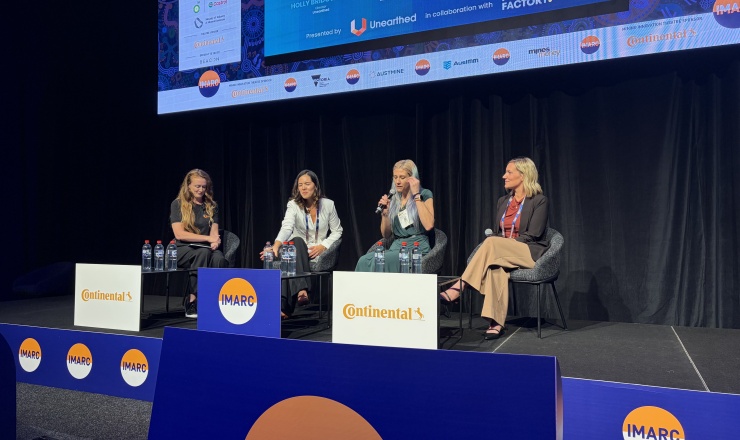
Funding the Future of Mining Tech at IMARC 2025
Hosted by Unearthed in collaboration with Founders Factory , our session “Funding the Future of Mining Tech” brought together a
Read articleIn Perth on Friday 30th June 2017 at the CORE Innovation Hub, Unearthed kicked off the first of two Digital Tribes hackathon events to take place in 2017. The purpose of Digital Tribes is to bring new tech talent into the resources industry, specifically for BHP. With the unprecedented shift towards digitisation, the resources industry is looking far and wide for those with the skills to join an industry revolution. Unearthed is supporting this mission by running 2 hackathons in Perth and Houston with BHP to offer the opportunity for talented innovators (developers/programmers, data scientist and other such technically skilled individuals) to connect in with the industry.
Digital Tribes Perth opened with 100+ individuals in attendance from a wide range of backgrounds, holding various different interests by being present at this unique event. View all the photos from opening night of Digital Tribes Perth here.
After the initial kick-off which included opening addresses from Kate Holling, Coert du Plessis and Sam Thomas from BHP, participants finalised their teams by mixing and matching skills in a team forming exercise. Teams were then introduced to the two challenges offered up by BHP from key mentors, providing direct access and insight into one of the world's largest diversified resources companies. Participants took this opportunity to ask questions and gain feedback from the mentors on the approaches they intended to take over the proceeding two weeks.
Angus Jones, Specialist Value Chain, BHP (pictured above with Kate Holling) was one of several mentors briefing participants on the challenges:
Running accounts of the Perth Digital Tribes event will be made across social media, to follow the activities make sure you are following Unearthed:
Innovator Updates & Highlights:
Michael Clarke:
Ben Coman, industry expert located in Perth:
Benjamin Jennings, student from the University of Western Australia:
Greg Biegel, researcher and consultant based in Perth,
Karoline Kolman, innovator from Perth, describes herself as being a beginner at using embedded devices like the Raspberry Pi but says she's looking forward to the challenge. Karoline is applying her marketing skills to give her team an advantage when it comes to presenting:
A man who is no rookie to the hackathon circuit in Perth is Robert Hortin, a graduate engineer from the University of Western Australia. In his team is Michael Clarke (quoted above) and Yihao Fu. Michael has a background in software architecture design and in his previous job he became familiar with agile and lean frameworks. Working together with three other members, they all appear to be on the same page so far. Yihao is early into his mining degree at Curtin University, and Robert has a biomedical engineering degree and works with start-ups.